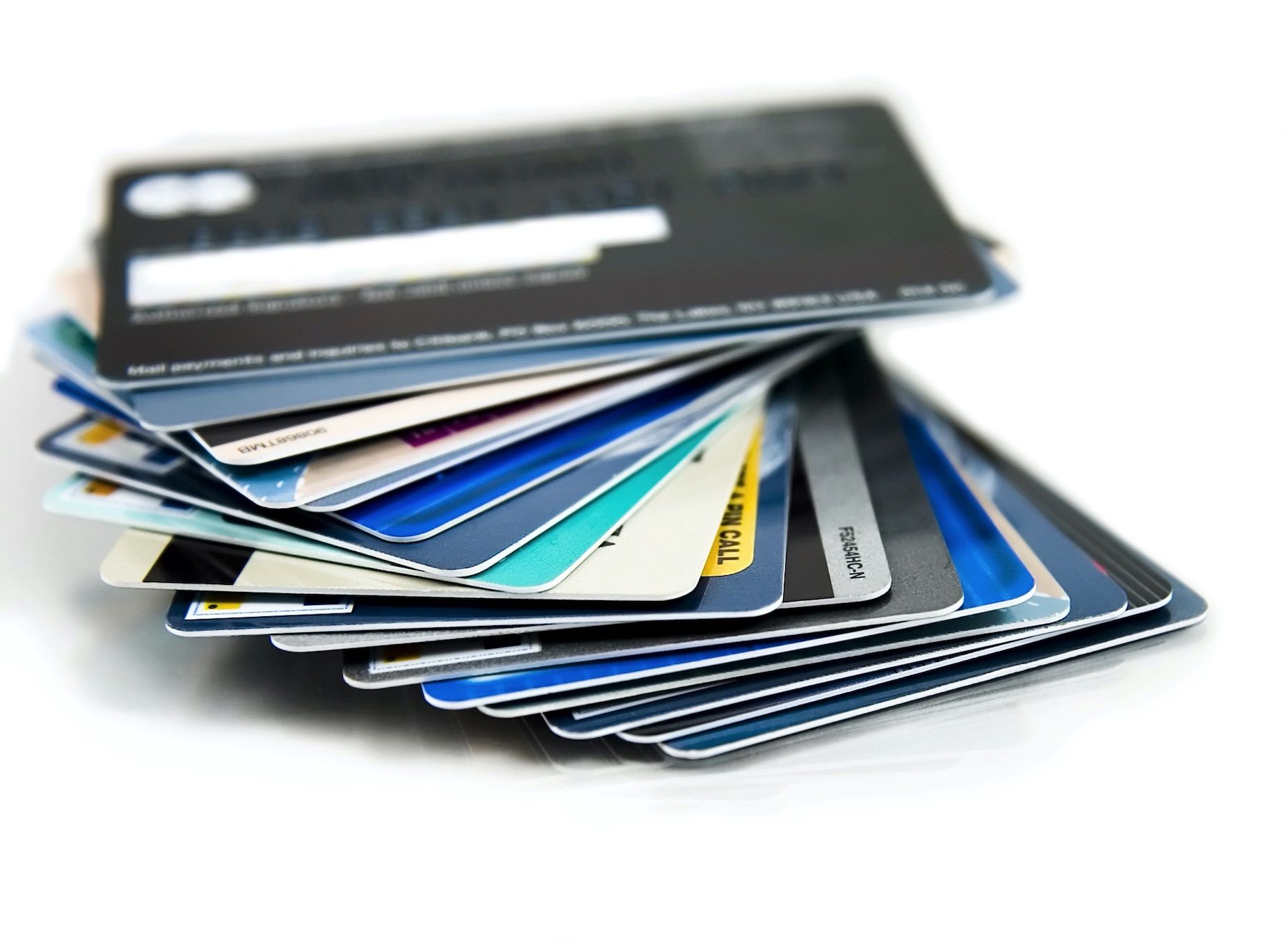Home>Finance>What Are The Three Most Common Credit Report Errors


Finance
What Are The Three Most Common Credit Report Errors
Published: October 20, 2023
Learn about the most common credit report errors in the finance industry and how they can impact your financial health.
(Many of the links in this article redirect to a specific reviewed product. Your purchase of these products through affiliate links helps to generate commission for LiveWell, at no extra cost. Learn more)
Table of Contents
- Introduction
- Understanding Credit Reports
- Importance of Accurate Credit Reporting
- The Three Most Common Credit Report Errors
- Incorrect Personal Information
- Erroneous Accounts or Loans
- Inaccurate Payment History
- Impact of Credit Report Errors
- How to Identify and Correct Credit Report Errors
- Steps to Dispute Credit Report Errors
- Conclusion
Introduction
Welcome to the world of credit reports, where financial well-being meets data analysis. Credit reports play a crucial role in our lives, determining our ability to secure loans, obtain credit cards, and even rent an apartment. These reports contain detailed information about our financial history, from past and current accounts to payment history and outstanding debts. While credit reporting agencies strive for accuracy, mistakes can happen, and unfortunately, they are more common than you might think.
In this article, we will explore the three most common credit report errors that can significantly impact your financial standing. Understanding these errors will empower you to monitor your credit report diligently and take the necessary steps to correct any inaccuracies that may arise.
But first, let’s delve into the basics of credit reports and why accuracy is crucial.
Note: This article serves as a general guide. If you have specific concerns or questions about your credit report, it is recommended to consult with a reputable credit counselor or financial advisor.
Understanding Credit Reports
Credit reports are detailed documents that provide a snapshot of an individual’s financial history and creditworthiness. They are created and maintained by credit reporting agencies, such as Equifax, Experian, and TransUnion, who gather and compile data from various sources, including lenders, credit card companies, and collection agencies.
These reports contain a wealth of information, including personal identifying information, credit accounts, payment history, public records, and inquiries. Lenders and financial institutions rely on credit reports to assess the risk of extending credit to individuals and determine interest rates, credit limits, and loan terms.
It is important to note that credit reports are not fixed and can change over time as new data is added or removed. Staying informed about your credit report is essential for maintaining healthy financial habits and a good credit score.
Here are some key components commonly found in credit reports:
- Personal Information: Your name, current and previous addresses, social security number, date of birth, and employment history. It is crucial to review this information for accuracy, as errors in personal details can lead to confusion and potential identity theft.
- Credit Accounts: Details about your credit accounts, such as credit cards, mortgages, auto loans, and student loans. This includes the account type, opening date, credit limits or loan amounts, and payment history.
- Payment History: A record of your payment behavior, including whether payments were made on time or if there were any late or missed payments. Timely payments reflect positively on your credit report, while late or missed payments can have a negative impact.
- Public Records: This section includes information on bankruptcies, tax liens, and civil judgments. Negative public records can significantly lower your credit score and impact your ability to obtain credit.
- Inquiries: Each time you apply for credit, there is a record of an inquiry. There are two types of inquiries: hard inquiries, which occur when applying for new credit, and soft inquiries, which are generated when lenders or potential employers check your credit as part of a background check.
Now that we have a clear understanding of credit reports let’s explore why accurate credit reporting is so important.
Importance of Accurate Credit Reporting
Accurate credit reporting is of paramount importance for several reasons. Firstly, it directly affects your financial well-being and ability to access credit. Lenders and financial institutions rely on accurate credit reports to assess the risk of lending money. A positive credit report can result in lower interest rates, higher credit limits, and more favorable loan terms. Conversely, inaccurate information can lead to repercussions such as loan denials, higher interest rates, and unfavorable loan terms.
Secondly, credit reports are instrumental in determining your credit score. Your credit score, a three-digit number calculated based on the information in your credit report, is an important metric used by lenders to evaluate your creditworthiness. A higher credit score indicates a lower credit risk, making it easier to secure loans and credit.
Moreover, accurate credit reporting is crucial in safeguarding your personal and financial information. Errors in your credit report can be a sign of potential identity theft, where someone fraudulently uses your personal information to open credit accounts or make unauthorized transactions. Regularly reviewing your credit report and promptly addressing any errors or discrepancies is a proactive step in protecting yourself against identity theft.
In addition to the individual level, accurate credit reporting also contributes to the overall stability of the financial system. Reliable credit information enables lenders and investors to make informed decisions, reducing the likelihood of financial crises and promoting responsible lending practices.
Overall, accurate credit reporting is essential for individuals and the financial system to function effectively. It determines your access to credit, impacts your credit score, protects your personal information, and fosters economic stability. With this understanding, let’s explore the three most common credit report errors that can affect you.
The Three Most Common Credit Report Errors
Unfortunately, credit report errors can occur, leading to inaccurate information and potentially negative consequences for individuals. Understanding the most common credit report errors can help you identify and rectify any discrepancies as quickly as possible. Let’s explore the three most frequent credit report errors:
- Incorrect Personal Information: One of the most common credit report errors involves inaccurate personal information. This can include misspelled names, incorrect addresses, inaccurate social security numbers, or outdated employment details. While these errors may seem minor, they can cause confusion and potentially impact your ability to access credit. It is essential to review your personal information carefully and notify the credit reporting agencies of any discrepancies.
- Erroneous Accounts or Loans: Another prevalent credit report error is the inclusion of accounts or loans that do not belong to you. These could be the result of mistaken identity or identity theft. Instances of fraudulent accounts, closed accounts still being listed as open, or unknown loans can significantly impact your credit score and financial standing. It is crucial to review all reported accounts and loans in your credit report carefully. If you identify any inaccuracies, promptly dispute them with the relevant credit reporting agencies.
- Inaccurate Payment History: Payment history is a critical factor in determining creditworthiness. Unfortunately, credit report errors can lead to inaccurately reported payment information. These errors may include missing payments that were actually made on time, late payments incorrectly recorded, or accounts incorrectly marked as in default or collections. Inaccurate payment history can have a significant negative impact on your credit score and financial reputation. It is essential to review payment history carefully and notify the credit reporting agencies of any discrepancies to have them corrected.
These three credit report errors are the most common, but it is worth noting that other types of errors can occur as well. These can include incorrect credit limits, duplicate accounts, or inaccurate public record information. Regardless of the specific error, it is crucial to address and correct inaccuracies promptly to protect your creditworthiness and financial well-being.
Next, we will explore the impact of credit report errors on your financial life and how you can identify and correct them effectively.
Incorrect Personal Information
One of the most common credit report errors involves incorrect personal information. These errors may seem insignificant, but they can have significant consequences if left unaddressed. Incorrect personal information can include misspelled names, wrong addresses, inaccurate social security numbers, or outdated employment details. While it may seem like a minor issue, it can lead to confusion and potential identity theft.
Why is accurate personal information important? Firstly, it ensures that the credit reporting agencies have the correct data to identify you. If your name is misspelled or your address is outdated, it may result in confusion and incorrect reporting. Additionally, if your personal information is mistakenly linked to someone else’s credit report, it can impact your creditworthiness and ability to access credit.
Here are the steps to identify and correct incorrect personal information on your credit report:
- Check your personal information carefully: Review your credit report thoroughly to ensure that all personal information such as your name, address, social security number, and employment details are accurate. Pay close attention to any spelling errors or outdated information.
- Compare it with your records: Cross-reference the personal information on your credit report with your own records, such as government-issued identification, utility bills, or tax forms. This will help you identify any discrepancies or outdated information.
- Contact the credit reporting agencies: If you notice any incorrect personal information, contact the credit reporting agencies (Equifax, Experian, and TransUnion) to dispute and correct the errors. They have specific procedures in place to handle disputes and update personal information.
- Provide supporting documentation: When disputing incorrect personal information, be prepared to provide supporting documentation to verify the correct information. This may include copies of identification documents, utility bills, or other official records that validate your personal details.
- Follow up on the correction: After disputing the incorrect personal information, follow up with the credit reporting agencies to ensure that the necessary corrections have been made. Request a new copy of your credit report to verify that the changes have been reflected accurately.
By taking these steps, you can rectify any incorrect personal information on your credit report and ensure that it accurately reflects your identity. This, in turn, will help maintain the integrity of your creditworthiness and financial reputation.
Now, let’s move on to the next common credit report error: erroneous accounts or loans.
Erroneous Accounts or Loans
Another common credit report error that can have a significant impact on your financial standing is the inclusion of erroneous accounts or loans. These errors can occur due to various reasons, such as mistaken identity or identity theft. Regardless of the cause, inaccurate reporting of accounts or loans can affect your credit score and ability to access credit.
Here are the steps to identify and correct erroneous accounts or loans on your credit report:
- Review your credit report: Carefully examine your credit report to identify any accounts or loans that you do not recognize or believe to be inaccurate. Pay attention to the account type, account numbers, and outstanding balances.
- Compare with your own records: Cross-reference the reported accounts and loans with your own financial records. If you come across any discrepancies, such as accounts you never opened or loans you never took out, it could indicate an error.
- Contact the credit reporting agencies: If you identify erroneous accounts or loans, initiate a dispute with the credit reporting agencies (Equifax, Experian, and TransUnion). Inform them about the specific accounts or loans that you believe to be inaccurately reported.
- Provide supporting documentation: When disputing erroneous accounts or loans, provide any supporting documentation you have that proves the inaccuracy. This can include account statements, loan agreements, or any other relevant paperwork.
- Follow up and monitor: After submitting a dispute, follow up with the credit reporting agencies to ensure that the investigation process is underway. Monitor your credit report regularly to check for updates and confirm that the incorrect accounts or loans have been removed.
It is crucial to address erroneous accounts or loans promptly, as they can negatively impact your credit score and overall financial reputation. Correcting these errors will help ensure that your credit report accurately reflects your financial history and prevent any unwarranted roadblocks in accessing credit.
Now, let’s move on to the final common credit report error: inaccurate payment history.
Inaccurate Payment History
Inaccurate payment history is another common credit report error that can significantly impact your creditworthiness. Your payment history is a crucial factor considered by lenders to assess your creditworthiness and determine interest rates and loan terms. Errors in payment history can result in incorrect reporting of late or missed payments, which can negatively impact your credit score.
Here are the steps to identify and correct inaccurate payment history on your credit report:
- Review your payment history: Carefully examine the payment history section of your credit report. Look for any discrepancies such as late or missed payments that you believe are inaccurately reported.
- Compare with your records: Cross-reference the reported payment history with your own records, such as bank statements or payment confirmations. If you find any discrepancies, gather evidence to support your claim.
- Dispute with the credit reporting agencies: Contact the credit reporting agencies (Equifax, Experian, and TransUnion) to initiate a dispute regarding the inaccurately reported payment history. Clearly state the specific payments that you believe to be incorrectly recorded.
- Provide supporting documentation: When disputing inaccurate payment history, provide supporting documentation such as bank statements or payment receipts that prove your claim. This will strengthen your case and increase the likelihood of a successful dispute.
- Follow up on the correction: After filing a dispute, stay in touch with the credit reporting agencies to monitor the progress of the investigation. Check your credit report regularly to ensure that the inaccurate payment history has been corrected.
Fixing inaccurate payment history is crucial for maintaining a positive credit profile. Errors in payment history can lead to lower credit scores and potentially hinder your ability to secure loans or obtain favorable terms on credit applications. By taking prompt action to dispute and rectify inaccurate payment history, you can ensure that your credit report reflects your true payment behavior.
Now that we have explored the three most common credit report errors, it is important to understand the impact these errors can have on your financial life and how to effectively identify and correct them. Let’s delve into the next section to understand the consequences of credit report errors and the steps to rectify them.
Impact of Credit Report Errors
Credit report errors can have far-reaching consequences on your financial life. Even seemingly minor inaccuracies can lead to significant problems when it comes to accessing credit and securing favorable loan terms. Understanding the potential impact of credit report errors is crucial for taking the necessary steps to rectify them. Here are some ways these errors can affect you:
1. Lowered Credit Score: Inaccurate information, such as late or missed payments that were actually made on time, can lower your credit score. Your credit score is a key factor considered by lenders when evaluating your creditworthiness. A lower credit score may result in higher interest rates, reduced credit limits, or even denial of credit applications.
2. Difficulty Accessing Credit: Credit report errors can make it difficult to access credit when you need it. Lenders rely on accurate credit reports to make lending decisions. If your credit report contains incorrect information, you may face challenges in obtaining new credit cards, loans, or mortgages.
3. Higher Interest Rates: Inaccurate information on your credit report can lead to higher interest rates on loans and credit cards. Lenders assess the risk of lending based on credit reports, and errors that make you appear more risky can result in higher borrowing costs.
4. Denied Rental Applications: Landlords often check credit reports when reviewing rental applications. If your credit report contains errors, such as incorrect payment history or mistaken accounts, it may impact your ability to secure your desired rental property.
5. Employment and Insurance Consequences: Some employers and insurance companies also review credit reports as part of their decision-making process. Inaccurate information on your credit report may lead to negative outcomes when applying for jobs or insurance coverage.
6. Identity Theft Risks: Credit report errors, such as accounts that don’t belong to you, may be indicative of identity theft. It is essential to monitor your credit report regularly to catch and address any signs of fraudulent activity.
In light of these potential consequences, it is crucial to be proactive in identifying and correcting credit report errors promptly.
Next, we will discuss how to identify and rectify credit report errors effectively.
How to Identify and Correct Credit Report Errors
Identifying and correcting credit report errors is a proactive step towards maintaining accurate and reliable credit information. Here are the steps to help you effectively identify and rectify any errors on your credit report:
- Request and Review Your Credit Report: Start by requesting a free copy of your credit report from each of the three major credit reporting agencies: Equifax, Experian, and TransUnion. Carefully review the information on each report, paying close attention to personal details, accounts, payment history, and any other relevant sections.
- Identify Discrepancies: Compare the information on your credit report with your own financial records. Look for discrepancies, such as incorrect personal information, unfamiliar accounts, erroneous payment history, or any other inaccurately reported information.
- Document the Errors: Take note of the errors you have identified on your credit report. Make sure to document the specific details of each error, including the account name, account number, and any supporting evidence you may have.
- Dispute the Errors: Contact the credit reporting agencies to dispute the errors you have identified. You can initiate the dispute online, by phone, or through mail. Provide a clear and concise explanation of each error and include any supporting documentation. It is recommended to send your dispute via certified mail to ensure it is received and tracked.
- Investigate and Follow Up: The credit reporting agencies are required to investigate your dispute within 30 days. During this time, they will contact the relevant creditors or data providers to verify the accuracy of the disputed information. Keep track of your dispute and follow up with the credit reporting agencies to ensure that the investigation is progressing.
- Review the Updated Credit Report: Once the investigation is completed, review the updated credit report provided by the credit reporting agencies. Check if the errors have been corrected and verify that the report accurately represents your credit history and financial information.
- Notify Other Relevant Parties: If the errors on your credit report were related to a specific creditor or data provider, notify them of the corrections made by the credit reporting agencies. This will help ensure that the corrected information is accurately reflected across all relevant records.
By following these steps, you can effectively identify and correct credit report errors, ensuring that your creditworthiness is accurately represented. Monitoring your credit report regularly and addressing errors promptly is essential for maintaining a healthy credit profile.
Now that you understand how to identify and correct credit report errors, let’s conclude the article.
Steps to Dispute Credit Report Errors
Disputing credit report errors is an important process to rectify inaccurate information and ensure that your credit report reflects your true creditworthiness. Here are the steps to effectively dispute credit report errors:
- Identify the Errors: Carefully review your credit report and identify any errors, such as incorrect personal information, inaccurate account details, or erroneous payment history. Take note of the specific errors you wish to dispute.
- Gather Evidence: Collect any supporting documentation that supports your claim and proves the inaccuracies on your credit report. This can include account statements, payment receipts, or any other relevant paperwork that proves the errors.
- Submit a Dispute: Contact the credit reporting agencies (Equifax, Experian, and TransUnion) to initiate the dispute process. You can do this online, by phone, or through mail. Clearly state the errors you wish to dispute and provide a detailed explanation of why you believe they are incorrect.
- Include Supporting Documentation: When submitting your dispute, make sure to include copies of the supporting documentation you gathered. This will strengthen your case and provide evidence to support your claim.
- Request Investigation: Ask the credit reporting agencies to investigate the disputed errors. They are legally obligated to investigate and resolve the dispute within 30 days under the Fair Credit Reporting Act (FCRA).
- Follow Up Regularly: Follow up with the credit reporting agencies to check on the progress of your dispute. It is essential to maintain regular communication and ensure that the investigation is proceeding in a timely manner.
- Review the Results: Once the investigation is complete, review the results provided by the credit reporting agencies. They will inform you of any changes or corrections made to your credit report based on the dispute. Verify that the errors have been rectified and that your credit report accurately portrays your credit history.
- Notify Creditors or Data Providers: If the errors on your credit report were due to the actions of specific creditors or data providers, notify them of the corrections made by the credit reporting agencies. This will help ensure that the accurate information is reflected in their records as well.
Remember, it’s important to be patient throughout the dispute process and to emphasize clear and concise communication with the credit reporting agencies. Regularly monitoring your credit report and addressing errors promptly will help protect your creditworthiness and maintain an accurate financial profile.
Now that you know the steps to dispute credit report errors, let’s wrap up the article.
Conclusion
Accurate credit reporting is crucial for maintaining a healthy credit profile and securing favorable financial opportunities. Unfortunately, credit report errors can occur and have a significant impact on your financial well-being. Understanding the most common credit report errors and knowing how to identify and correct them is essential for protecting your creditworthiness.
In this article, we explored the three most common credit report errors: incorrect personal information, erroneous accounts or loans, and inaccurate payment history. We discussed the potential consequences of these errors, such as lowered credit scores, difficulty accessing credit, and higher interest rates. It is evident that even seemingly minor errors can have significant implications for your financial life.
To address credit report errors, we provided the necessary steps to identify and correct them effectively. From reviewing your credit report and gathering evidence to initiating disputes with the credit reporting agencies and following up on investigations, each step is crucial in ensuring the accuracy of your credit information.
Remember, monitoring your credit report regularly is vital for identifying and addressing errors promptly. By staying proactive and taking action to correct inaccuracies, you can protect your creditworthiness and financial reputation.
If you encounter difficulties or complexities in disputing credit report errors, it is advisable to seek guidance from a reputable credit counselor or financial advisor. These professionals can provide expert advice tailored to your unique situation.
Keeping your credit report accurate is an ongoing responsibility. By being diligent in reviewing and addressing potential errors, you can maintain a strong credit profile, access better financial opportunities, and enjoy the benefits of a solid financial foundation.
Note: The information provided in this article serves as a general guide and should not be considered as legal or financial advice. It is recommended to consult with professionals for personalized assistance regarding your specific credit report errors.














